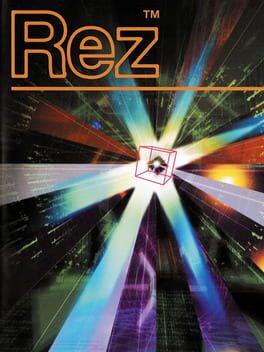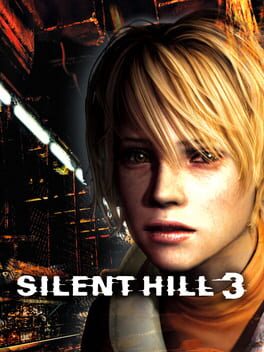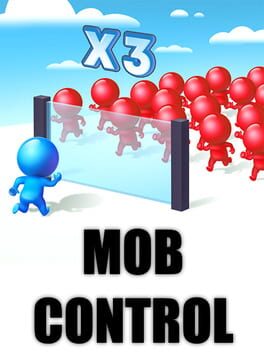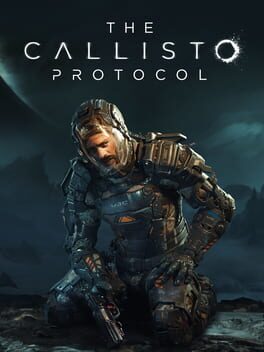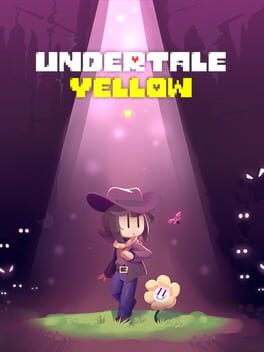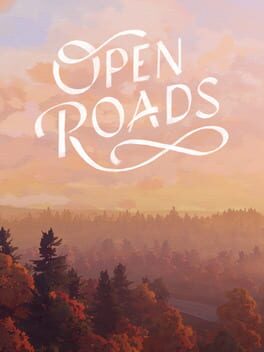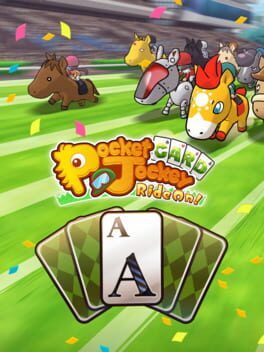psychbomb
BACKER
GAMETHOUGHTS WRITER!!!!!!
EVERY GAME DESERVES TO BE REVIEWED!!
Badges

GOTY '23
Participated in the 2023 Game of the Year Event

Listed
Created 10+ public lists

1 Years of Service
Being part of the Backloggd community for 1 year

Famous
Gained 100+ followers

Treasured
Gained 750+ total review likes

Pinged
Mentioned by another user

Early Access
Submitted feedback for a beta feature

Trend Setter
Gained 50+ followers

Adored
Gained 300+ total review likes

Donor
Liked 50+ reviews / lists

Loved
Gained 100+ total review likes

Popular
Gained 15+ followers

Gone Gold
Received 5+ likes on a review while featured on the front page

Full-Time
Journaled games once a day for a month straight

Gamer
Played 250+ games

Well Written
Gained 10+ likes on a single review

GOTY '22
Participated in the 2022 Game of the Year Event

Liked
Gained 10+ total review likes

Shreked
Found the secret ogre page

Roadtrip
Voted for at least 3 features on the roadmap

On Schedule
Journaled games once a day for a week straight

Best Friends
Become mutual friends with at least 3 others

Noticed
Gained 3+ followers

N00b
Played 100+ games
Favorite Games
400
Total Games Played
025
Played in 2024
105
Games Backloggd
Recently Played See More
Recently Reviewed See More
The Callisto Protocol is a man drowning. He’s been swept out by the tides deeper than he can swim, and now I feel compelled to go and be the one who drags him back to shore. I’m not looking forward to it as I swim out there. This always ends badly. I know he’ll kick, and flail, and panic, and drag me under with him. But something compels me. I dip beneath the waves, gliding on the current. Every kick is met only with more water, never ground; it’s been a while since either of us has been able to touch bottom. I get to the man. All of the dread that I felt swimming up to him — the growing pit in my stomach warning me that he’d kill us both — fades as I get a hold of him. He’s calm. He doesn’t fight. He wants to be rescued, and he's coherent enough to tell me as much. So much worry on my end, and for nothing. We’re both going home, and my doubts were unfounded. The two of us make our way back to the shallows, and my heart swells. Nobody’s gonna believe this. I get to be the one who brings back the guy that everyone thought couldn't be saved.
We make it from the depths to a point where the ocean reaches our shins, at which point the man panics and submerges my head in about two feet of water until we both die. I knew I should have let the fucker drown.
What we’re looking at here is a bad start that leads into a remarkably strong middle, hitting an impressive stride just in time to trip and break both legs three hours before the finish line. But that middle section is good. It’s really good. It’s so good that I was ready to come in here and lord a massively inflated score over the heads of all of the doubters who didn’t get it. Reality hits hard when it hits, though, and there’s no denying that The Callisto Protocol just runs out at the end. It runs out of ideas, it runs out of money, it runs out of employee morale — it runs dry and it runs empty until the engine shears itself in half.
This is pretty, but a game "being pretty" hasn't impressed me for fifteen years now. Everything since the early-mid 2010s has given me this shrug-your-shoulders feeling of "yeah, I guess it looks good" and spurred little in me beyond that. I know it's a tired truism to trot out — "art direction is more important that graphical fidelity!", as if we don't all know that already — but even games from that era that were trying to look as realistic as the latest titles don't read as being all that different to me today. Honestly, I think the face-scan mocap shit that's everywhere in AAA games these days looks kind of bad; they're all sitting deep in that uncanny valley where everyone's head looks like it's got a video of the actor's face wrapped around it. Even with (perhaps due to an overreliance upon) all of the tech in place, some of these animations look incredibly bad. Here's a shot of Josh Duhamel's character screaming in agony as he gets an implant stuffed in his neck that hurts so bad that he has a heart attack and dies. It's silly. This is not an expression of pain. He's making a YouTube thumbnail face. Fuck, the source of that image is a YouTube thumbnail.
So, yes, this is all very technically impressive, but in practice it's all just bloom and haze and fog and I can't fucking see any of it because someone turned all the lights off. None of this sparks joy. Everything is gray and bland and devoid of life. There's nothing that even remotely scratches at iconic Dead Space setpieces like the Church of Unitology or the cryopod rooms, because the art direction on display is kind of shit. It's a just-so approximation of enough of Dead Space's elements to provoke familiarity, but it's off in a way that betrays the fact that Visceral was a team made up of a lot more people than just Glen Schofield. He isn't Visceral, and this isn't a spiritual successor to Dead Space. It's a spiritual regression.
But as desperately as this wants to stay latched to the teat of Dead Space, it isn't open to those who want the game to be Dead Space. This is a melee-focused system based around dodging, combos, and environment kills; Dead Space is a shooter based around positioning, dismemberment, and, uh, also environment kills. You've gotta meet The Callisto Protocol on its own terms; playing it like Dead Space is a losing position. You should be doing this for everything you consume, by the way. Don't try and cram a work you don't like into a box that doesn't fit it. Play the game that they designed, not the one you wish they'd designed. It took a little readjusting over the course of the entire opening hour of The Callisto Protocol, but I eventually came to understand what it was going for, how it wanted to be played. And I liked it.
Actually, I really liked it.
Combat is simple, but raw enough to be really satisfying once you get the loops figured out. Each fight will take place either as a gauntlet of enemies that pour out one after the other, or as group battles where you'll be caught between three or four monsters at a time. It's a game of dodging, waiting out the combos, finding an opportunity to strike, and then going all-out until you're forced to stop. Weave around a three-hit combo, dole out one of your own that takes the arm off of a monster, get whipped around by another, block his strike, take his legs out, get shoved, pop one with the new space you've been given; it's a wonderful little system that isn't hard to come to grips with, but is punishing enough to mean that eating a bad hit or two will send you back to your last checkpoint. The added complexity comes in the form of your GRP (pronounced as "grip") and your guns, though you'll be rocking with the starting magnum for the vast majority of the game. The GRP can pick up enemies and hazards to toss them around, and your guns are your combo enders. You can also open with gunfire if you've got some distance on the monsters; they've gotta come to you, so you can filter a group down a chokepoint and take one of them out before you're forced to rely on the melee to take you the rest of the way. Combo-ender gunshots can sever limbs, decapitate enemies, force staggers to open up rushdown opportunities, and generally just act as a major force-multiplier to make sure a crowd of monsters is never unmanageable. If you're thinking that this sounds like it's not really a system primed for a horror game, you'd be right. The Callisto Protocol sucks dick at being a horror game. As an action game, though — much like big brother Dead Space — I thought it was great.
Eventually, you'll progress to a point in the narrative where hitting the monsters for long enough will make worms rupture from their body. These worms need to be shot within a fairly tight window of time, or else they'll cause the monster in question to undergo a transformation that makes them bigger, stronger, and faster. You really do not want to let the worms make the monsters evolve. In theory, this is an interesting escalation — you can't afford to drag fights out the way that you could earlier — but as we've seen throughout this write-up, theory is distinct from practice.
In practice, the worms will always erupt from the same place; the generic guys who smack you around will have them erupt from their guts, and the spitters will have them erupt from their heads. These are the primary enemy types that you'll be fighting against for the overwhelming majority of your playthrough, so combat encounters go from frenetic punch-ups where you're desperately trying to make the right call to something that's solved by a flowchart: three or four hits always followed by a gut shot or a head shot, rinse and repeat. There's basically no reason to ever open up by firing your gun now that enemies can heal by evolving, which leaves you the options to fling the enemies with your gravity glove and hurt them a little bit, or to swing at them with the baton. The baton expends no resources, is fast, is always guaranteed to connect, is a safe option, and will open up enemies for the instakill gut/head shot in no time at all. So many tools, and no reason to use any of them besides the fucking stick. Everything was useful only two hours prior, so being boxed in to what's obviously an optimal strategy to repeat on every single monster serves only to squander a system that was working just fine before.
Where things really fall apart, however, is in the third act. Jacob, our protagonist, falls down a gutter or some shit into an underground area where all of the enemies are blind. They've got super-hearing, but they can't see. Firing a shot or swinging at one with your baton may as well spare you the ceremony of kicking off a fight and just reload your checkpoint the second you press the button; you'll get swarmed by too many monsters to deal with, and they'll chew through every resource you have before they kill you. What you have to do instead is pull a page from Joel Thelastofus's book and crouch-walk around while shivving these clicker expys to death. Unlike in The Last of Us, however, the shiv that you get has infinite uses, meaning that you can very easily just crouch-walk around and kill everything without alerting a single enemy. This is optimal. They don't hear you shivving them, even as Jacob grunts and growls and the monsters gurgle and shriek, and there's no reason to sneak past them; they still drop ammo and money and health packs just the same as everything else. If you could just blast your way through this section, it'd be over in thirty minutes; instead, you have to play the most boring stealth section ever devised by human hands and it takes upwards of two and a half hours.
You get back to the regular action combat in time for the game to end, but the damage is more than done at that point. You fight the exact same boss four times in the span of an hour, and his pattern is literally just doing right-hand swings. You hold left on the control stick and auto-dodge everything while shooting him once per dodge. It's so boring. I knew while I was going through the ridiculously long stealth segment that they were padding for time, but repeating the same boss fight four fucking times really gives it away to anyone who wasn't paying attention that they were running on empty. I went from itching for more in the middle act to wishing it would just hurry up and end by the start of the finale.
Jacob gets to the escape pods, meets a zombie warden who's managed to keep his personality (generic asshole), and then the zombie warden does the Resident Evil boss thing where he talks about having superior genetics and then turns into a big meat monster with glowing orange eyeball weakpoints. I'll take the opportunity now to point out that this game was written by two people. The lead writer has never worked on anything else in his entire life. There were five times as many employees dedicated to the face scanning as there were on the writing team. Remember that the facescanning looks like shit, so adjust your expectations for the quality of the writing accordingly. Whatever. Nobody was ever playing this for the story. It's still a weird choice for a game like this, though; with everything being told to you through audio logs and exposition from characters who have a clue what's going on, you'd think you'd want more hands on deck. Then again, the only thing anyone ever seems to say is "Jacob, go to [the place], I'll explain later", so you probably don't need to put too much effort into putting that together.
But my mind keeps wandering back to the thought that the people at Striking Distance were working twelve hour days, seven days a week — and for what? What about The Callisto Protocol demanded such brutal hours for such a long stretch of development? I can't find anything in the time leading up to the game's release that would indicate what was sucking up so many resources; all I've come up with are some vague gestures towards "new lighting techniques" and "haptic feedback", all incidentals that barely add much of anything to a work that's remarkably standard. This cost $160 million to Dead Space 2's 60 million and it looks and plays worse.
There’s an excellent game within The Callisto Protocol, and one that I imagine would have been able to flourish if made under the banner of someone who actually had a clue. Literally all it takes to turn this from mediocre to great is a better manager. Talented people were overworked and underpaid to make something that broadly isn’t good, but shines in parts; had they been treated properly and overseen by a real leader instead of an MBA meathead who stepped down the second shit got hot, they would have made something that could actually eat Dead Space’s lunch. Instead, we got this, and it’s begging for Dead Space’s scraps.
Glen Schofield can go fuck himself.
It’s not enough of the sauce, and it takes a little while before they actually start doling the sauce out, but by God, they’ve got the sauce! Undertale Yellow actually gets it, and what a triumph that is. It manages to avoid a lot of the pitfalls which plague fangames and have resulted in them getting such a broadly negative perception as being lesser forms of media, and it does so with an impressive amount of finesse. There are more than a couple of misfires here, and it can’t manage to be something that meets nor succeeds the original Undertale, but they’ve got the sauce. It’s a very big swing to take, and just about as big a hit.
What I appreciate most about Undertale Yellow is the sheer amount of restraint that the developers showcase. You only see Toriel for a grand total of about two minutes before she’s out of the game for good, and Mettaton, Alphys, and Asgore are mentioned a few times; apart from that, the only returning character who actually sticks around for most of the runtime is Flowey, and he acts differently enough that a large part of the narrative is trying to figure out what angle he’s playing at. There’s no Sans. He doesn’t even get namedropped! What? Can you imagine releasing an Undertale fangame and not bringing up Sans? When I got to the Snowdin Town bridge and released that Sans wasn’t going to show his face, I got pumped. It’s brave. A group far less confident in themselves would have just made this a second lap through the extant Underground, going on a little adventure to essentially experience Undertale all over again in a world where you could just play Undertale again if that was what you wanted to do.
The first impressions when the game starts branching off of Undertale aren’t especially strong. The first original NPC that you meet in the Ruins — Darv or Darm or Darl, whatever his name is — very much looks like someone’s Adventure Time self-insert that they drew to be Marceline the Vampire Queen’s boyfriend. Picture me retching as I type this. His character isn’t particularly good, mostly just muttering about some betrayal from long past and talking about how he wants to be left alone, and the game seems to agree with me in this respect; he drops off the face of the earth for the remainder of the runtime, only showing up again at the very end to make sure that the player hasn’t forgotten about him. The other new characters are significantly better: Martlet is a strong and obvious standout among the rest of the cast, North Star and his posse aren’t as consistent in their designs nor personalities but are still good, and Ceroba seems a lot like someone’s fursona but not in an especially bad way. I ended up liking more of the principle cast than I didn’t, so they’re definitely doing something right on the design and writing front.
The average enemy encounter is fine; there’s nothing especially interesting about most of them, though some do offer a couple of interesting gimmicks. Making the “floor slippery” so that the soul glides around or the music enemies blasting you with waveforms that you need to dodge are cute. Most of the boss fights don’t offer anything especially interesting, though. While Pacifist Ceroba does manage to get a few interesting gimmicks going in the form of giving the player the Big Shot, the overwhelming majority of the boss fights are just clicking Spare over and over and over again; your ACT commands often do nothing besides give the same line of flavor text every time you select them, which is a fairly boring way to handle these big encounters. I found the Guardener to be the best fight simply because it required you to hack away at vines blocking your options which then led into an ACT chain, giving you some freedom in the form of selecting which of your options you want to be available to you first. El Bailador is fine, turning the game into a rhythm section for a few minutes, but it doesn’t do much for me. So many of these fights are just about dodging bullets and slamming Mercy over and over again, and that’s never really been the draw of Undertale.
Similarly ranging from alright to forgettable are the music tracks. There’s nothing truly offensive here, and there are a couple that I like, but it's important for us to remember that Toby Fox was a composer long before he was a game designer. I can still hum the melodies to just about every track from Undertale, but I don’t think I could do the same for a single song from Undertale Yellow — at least, not from the ones that don’t lift one of Toby’s leitmotifs. While I do admire the developers’ willingness to get out from under the Undertale narrative trappings of returning characters walking in like sitcom guest stars for the audience to whoop and applaud to, I can’t extend the same praise to their composing. Ceroba’s fight plays a remix of Hopes and Dreams that the game absolutely hasn’t earned, and it took me right out of a battle that I was digging up until then. There are quite a few instances of obvious musical recycling in places where they don’t belong, and the songs that are wholly original don’t interest me much. They're far from anything terrible, but they feel a bit lazy in a game where there isn’t much else that does.
Undertale Yellow is ultimately a good fangame, and that is perhaps deserving of more celebration than anything else. It is very clearly made by a team of passionate and creative people, and I don’t think that their time spent on this would have been better spent on an original IP, instead. With that said, I would prefer for the next thing that this team releases to be something entirely of their own design; with all of the eyes that they’ve got on them now, I’m sure they’ve cultivated an audience that would be glad to see more.
And the sprites look too good. It’s all wrong. Part of the appeal of Undertale is that it looks like hot shit.

